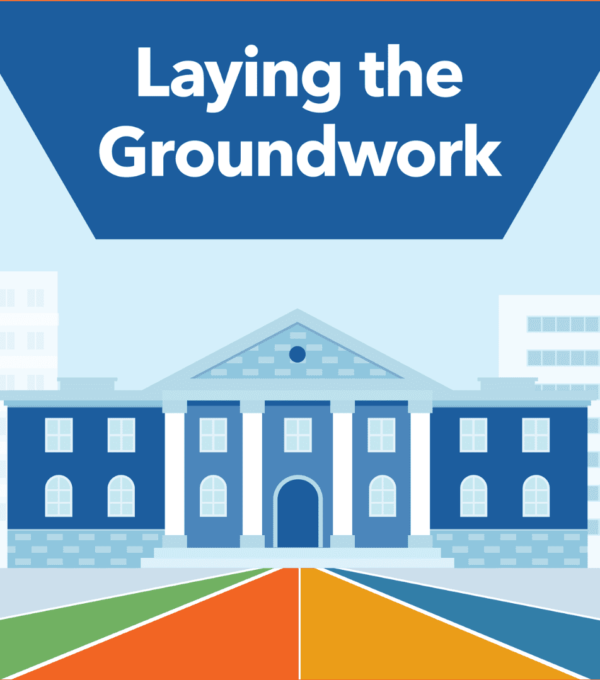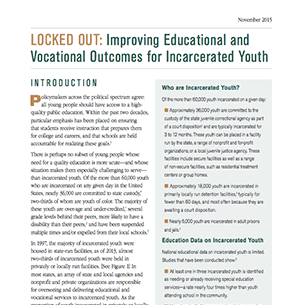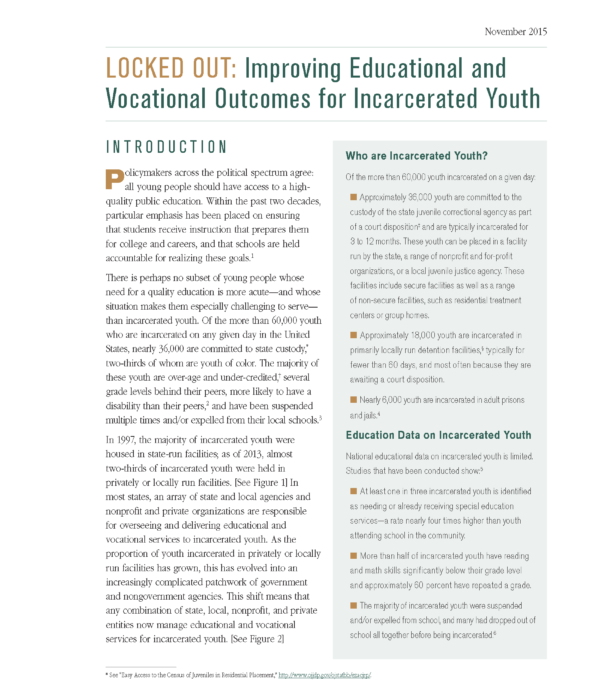Improving College and Career Readiness for Youth and Young Adults in the Justice System
Locked Out: Improving Educational and Vocational Outcomes for Youth highlights key findings and recommendations drawn from a 2015 national survey conducted by the CSG Justice Center, in partnership with the Council of Juvenile Correctional Administrators, that examines how education for incarcerated youth is overseen and delivered, how outcome data is collected and used, and how youth are transition to education settings post release. The CSG Justice Center is also working to develop a strategy to support states in improving student outcomes for incarcerated youth through its existing technical assistance programs and by working with select state demonstration sites to identify promising approaches for collecting, reporting, and using student outcome data to drive decisions that can be shared with the broader field.
As states raise and extended the age of juvenile court jurisdiction, there is a growing proportion of older youth who require education and vocational skills to transition to crime free and productive adulthood. Unfortunately, states have historically neglected to provide quality educational and vocational services to incarcerated youth and young adults. Most incarcerated youth and young adults are over-age and under-credited, several grade levels behind their peers, and likely to have an educational disability.
In response, the CSG Justice Center is working to identify policy and practice barriers to meeting the education and vocational needs of youth and young adults in the juvenile justice system, and offer strategies for improving outcomes for these young people.
On Track: How Well Are States Preparing Youth in the Juvenile Justice System for Employment?
Drawing on first-of-its-kind survey data collected from all 50 states in partnership with the Council of Juvenile Correctional Administrators, this new brief establishes an unprecedented baseline for understanding how juvenile correctional agencies are preparing youth for employment.
Laying the Groundwork: How States Can Improve Access to Continued Education for People in the Criminal Justice System
Continued education is proven to have a notable impact on reducing recidivism. Yet, the vast majority of states have major barriers to postsecondary education opportunities for people during incarceration and upon release. This report provides a comprehensive, state-by-state analysis of postsecondary education policy and practices.

Continued education is proven to have a notable impact on reducing recidivism.…
Read More












